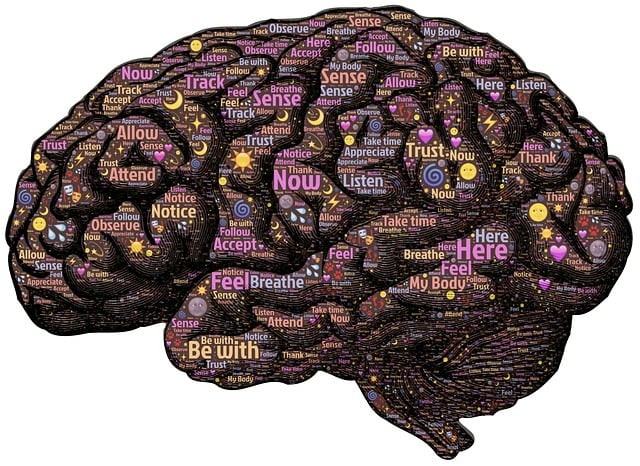In the bustling, trauma-prone city of Lakewood, the demand for accessible mental wellness support is booming. Digital tools, particularly mental wellness apps like the Lakewood Trauma Therapy App, are filling this gap by offering personalized, convenient, and affordable resources for stress management, anxiety relief, and trauma recovery. This app provides evidence-based therapy sessions, coping skills exercises, crisis intervention guidance, and interactive self-care activities to help users process emotions effectively and connect with a supportive community. With a focus on user experience (UX), cultural sensitivity, and ethical data protection practices, Lakewood Trauma Therapy is revolutionizing mental wellness support in today's digital era.
In today’s fast-paced world, mental wellness support apps are becoming increasingly vital. As the demand for accessible therapy solutions grows, applications like the Lakewood Trauma Therapy app offer promising avenues for user healing and recovery. This article explores the rising need for such digital tools, delves into the key features of the Lakewood Trauma Therapy App, emphasizes the importance of user experience design, and discusses crucial ethical considerations surrounding privacy in digital mental health solutions.
- Understanding the Growing Need for Mental Wellness Support Apps
- Key Features and Functionality of Lakewood Trauma Therapy App
- Designing for User Experience and Engagement in Therapy Apps
- Ethical Considerations and Privacy in Digital Mental Health Solutions
Understanding the Growing Need for Mental Wellness Support Apps

In today’s fast-paced world, the demand for accessible mental wellness support has never been higher. Increasing awareness about the importance of emotional health and well-being has led many individuals to seek alternative solutions beyond traditional therapy settings. This shift is particularly evident in urban areas like Lakewood, where trauma therapy services are in high demand. The need for digital tools that offer personalized, convenient, and affordable mental wellness support has become more pressing than ever.
Mental wellness apps cater to a broad spectrum of users, addressing issues ranging from stress management and anxiety relief to fostering inner strength development. They provide accessible resources and coping mechanisms tailored to individual needs, making them valuable additions to comprehensive mental health care. By integrating evidence-based practices and leveraging technology, these apps offer a promising avenue for those seeking support between therapy sessions or as a standalone resource for maintaining emotional intelligence.
Key Features and Functionality of Lakewood Trauma Therapy App

The Lakewood Trauma Therapy App is designed to offer a comprehensive digital space for individuals seeking healing and growth after traumatic experiences. Key features include personalized therapy sessions tailored to various trauma types, providing users with evidence-based tools to process their emotions effectively. The app encourages regular practice through daily coping skills exercises, incorporating techniques like mindfulness meditation to foster self-awareness and resilience.
Additionally, it incorporates crisis intervention guidance, enabling quick access to resources for severe situations. Users can engage in interactive activities that support reflection and self-care, while also connecting them with a supportive community of peers on similar journeys. Regular tracking allows users to monitor their progress, fostering accountability and a deeper understanding of their healing process.
Designing for User Experience and Engagement in Therapy Apps

Designing for user experience (UX) and engagement is paramount when developing therapy apps like Lakewood Trauma Therapy. The goal is to create a digital environment that fosters comfort, encourages consistent use, and ultimately supports users in their mental wellness journeys. Incorporating intuitive navigation, clear communication, and visually appealing interfaces can significantly enhance UX. Features such as personalized content, interactive exercises, and gamification elements can boost engagement, making therapy more accessible and less intimidating.
Cultural sensitivity is a critical aspect of mental healthcare, and it should be reflected in app design. Recognizing and addressing diverse cultural needs ensures that Lakewood Trauma Therapy resonates with a broader audience. Integrating conflict resolution techniques from various cultural perspectives, for instance, can enrich the therapeutic experience. Additionally, considering the production of a Mental Wellness Podcast Series can complement the app by offering additional resources and engaging content tailored to different preferences and learning styles.
Ethical Considerations and Privacy in Digital Mental Health Solutions

As digital mental health solutions gain popularity, ethical considerations and privacy become paramount. Lakewood Trauma Therapy, like any innovative technology, must navigate complex issues to ensure user data is protected and utilized responsibly. The potential for sensitive information to be accessed or misused by unauthorized parties is a significant concern. Developers must implement robust encryption methods and adhere to strict data protection regulations, such as HIPAA (Health Insurance Portability and Accountability Act) in the US. Transparency about data collection practices is crucial; users should be clearly informed about what data is collected, how it’s used, and with whom it’s shared.
Privacy isn’t just about legal compliance; it builds user trust. Users seeking support for issues like burnout prevention strategies for healthcare providers or stress reduction methods expect their information to remain confidential. This trust can be jeopardized if there are data breaches or misuse of personal details. Therefore, mental wellness app developers must prioritize security and privacy as core components of their design and development processes, ensuring that users feel safe and respected when accessing digital therapy solutions like Lakewood Trauma Therapy.
The development of mental wellness apps, such as the Lakewood Trauma Therapy app, presents a promising avenue to address the increasing demand for accessible mental health support. By incorporating key features like personalized therapy sessions and user-centric design, these applications have the potential to revolutionize mental healthcare. However, it is imperative to navigate ethical considerations and prioritize privacy to ensure user trust. As digital solutions continue to evolve, striking a balance between functionality and responsible data handling will be crucial in creating effective tools for managing mental wellness.














